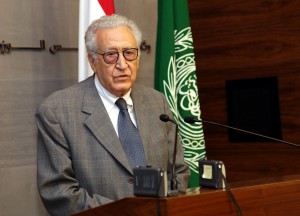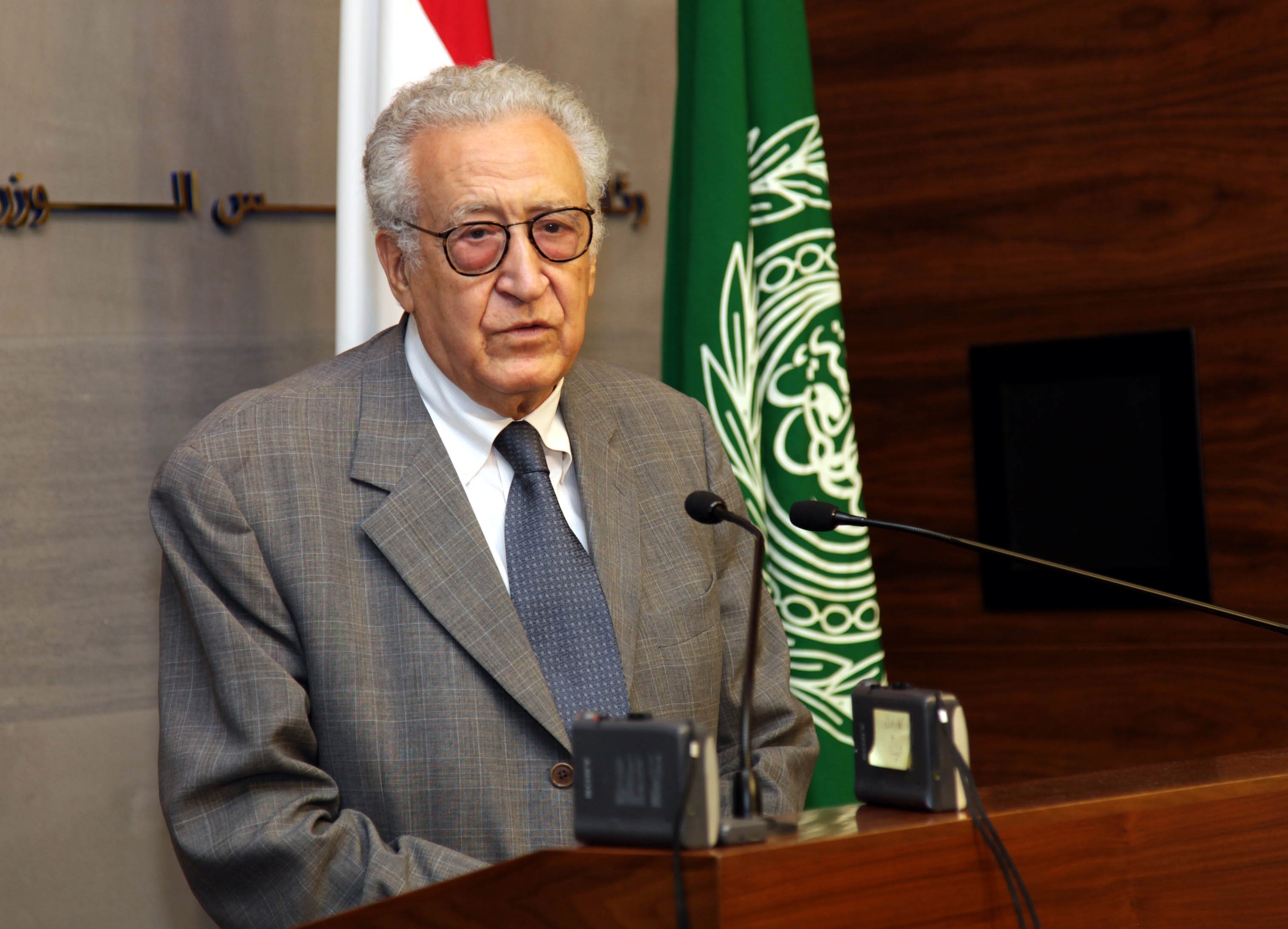
Beirut, (AFP) – Syria’s 19-month conflict could set the entire region ablaze, international peace envoy Lakhdar Brahimi told reporters in Lebanon on Wednesday.
“This crisis cannot remain confined within Syrian territory,” Brahimi said. “Either it is solved, or it gets worse… and sets (the region) ablaze. A truce for (the Muslim holiday of) Eid al-Adha would be a microscopic step on the road to solving the Syria crisis.”
Brahimi called on Monday for a temporary ceasefire during the four-day Eid al-Adha holiday starting on October 26.
“The Syrian people, on both sides, are burying some 100 people a day,” he said.
“Can we not ask that this toll falls for this holiday? This will not be a happy holiday for the Syrians, but we should at least strive to make it less sad.”
The Damascus regime says it is prepared to discuss the proposal in talks with Brahimi. The exiled opposition says it would welcome a ceasefire, but insists the ball is in the government’s court to halt its daily bombardments.
Brahimi said that “if the Syrian government accepts, and I understand there is hope, and if the opposition accepts,” a truce would be a step “towards a more global ceasefire, the withdrawal of heavy artillery, a stop to the flow of foreign weapons, and then towards a political solution in Syria.”
His tour to countries playing influential roles in the crisis has taken him to Saudi Arabia and Turkey, which support the revolt, and Iran, Damascus’s closest regional ally, as well as to Iraq and Egypt.
Brahimi said he would end his tour in Damascus, but did not say when.
“We are in discussions with all the parties to stop the bloodbath and to (ensure that) problems in Syria are solved by the Syrians themselves,” Brahimi said, after meeting with Lebanese Prime Minister Najib Mikati.
“Everyone says the bloodbath in Syria is very dangerous, and that it needs to stop, but each side blames the other” for violence that has killed more than 33,000 people since the outbreak of a revolt in March 2011, according to the Syrian Observatory for Human Rights.
“We need to see how pull Syria out of the abyss it has fallen into.”
Brahimi said he was following in the footsteps of his predecessor, Kofi Annan, in dealing with “this grave issue,” as well as the Geneva accords reached on June 30 by an action group on Syria.
Annan’s six-point peace plan failed to stop the bloodshed, while the Geneva accords fell short of calling on Assad to step down.

